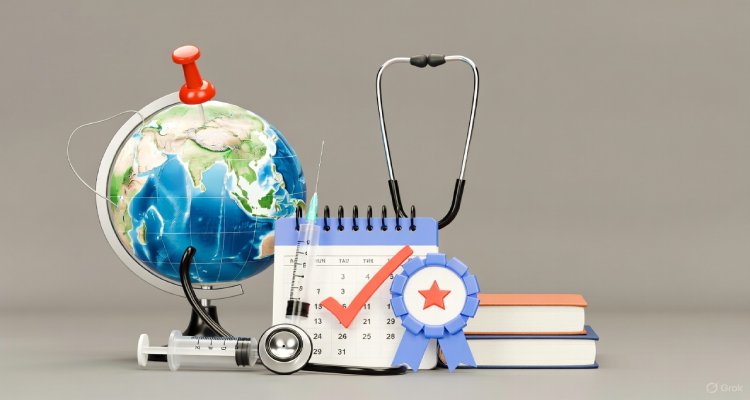WHO declares end of Indonesia’s poliovirus outbreak after yearslong vaccination campaign

WHO declares Indonesia’s polio outbreak over after intensive vaccination campaigns, marking a major step in global polio eradication efforts.
WHO has officially declared the end of Indonesia’s polio outbreak after nearly three years of intensive vaccination efforts and public health measures. The outbreak, caused by the circulating vaccine-derived poliovirus type 2 (cVDPV2), began in October 2022 in Aceh province and was contained through extensive vaccination campaigns and improved routine immunization coverage. This milestone marks a significant victory in Indonesia’s public health landscape and a crucial step towards global polio eradication.
Background and Context of Indonesia’s Polio Outbreak
Indonesia was largely polio-free since being declared free of wild poliovirus in 2014. However, in October 2022, a resurgence emerged in Aceh province due to low immunization coverage over preceding years and adverse environmental conditions. The outbreak subsequently spread to multiple provinces including Banten, West Java, Central Java, East Java, and regions of Papua. Poliovirus type 2, which had been eradicated in its wild form globally since 1999, reemerged as circulating vaccine-derived poliovirus (cVDPV2) because of immunity gaps in the population. Polio is a highly contagious viral disease that primarily affects children under five, leading to paralysis and sometimes death if the virus infects the spinal cord.
Major Response Efforts and Developments
Indonesia launched an intensive response involving two rounds of nationwide immunization campaigns using the novel oral polio vaccine type 2 (nOPV2) from late 2022 through to the third quarter of 2024. Parallel efforts also increased routine immunization—raising the percentage of children receiving their second dose of the inactivated polio vaccine from 63% in 2023 to 73% in 2024. Approximately 60 million additional doses of polio vaccine were administered during this period. Surveillance systems for polio, including Acute Flaccid Paralysis (AFP) detection, were strengthened, ensuring rapid case identification and response. The last confirmed cVDPV2 case was reported in South Papua in June 2024, and subsequent assessments confirmed no new cases, leading WHO to declare the outbreak officially over in November 2025.
Expert and Public Sentiment
Health officials, including Indonesia’s Minister of Health Budi Gunadi Sadikin, credited the success to the dedication of health workers, parents, and communities in getting children vaccinated. WHO regional officials described this achievement as a critical step toward global eradication of polio, while stressing the need for ongoing vigilance to prevent resurgence. The commitment from government and international partners like WHO, UNICEF, UNDP, CHAI, and Rotary International was vital in supporting the response efforts.
Impact and Future Implications
The closure of the outbreak signifies a major public health success that protects millions of Indonesian children from the debilitating effects of polio. Indonesia’s Ministry of Health reaffirmed its commitment to maintaining polio-free status by continuing to strengthen routine immunization, enhancing surveillance, encouraging cross-sectoral collaboration, and promoting community engagement. This milestone also bolsters global eradication goals, as polio remains endemic in only two countries and vaccine-derived outbreaks pose the greatest ongoing challenge worldwide.
Conclusion
Indonesia’s effective containment and official declaration of the end of its poliovirus outbreak demonstrate the power of coordinated vaccination campaigns and strong public health systems. Sustaining these gains through higher immunization coverage and vigilance is essential not only for Indonesia but for global polio eradication ambitions. This accomplishment offers hope and a blueprint for other countries battling vaccine-derived poliovirus outbreaks.
Disclaimer: This article is for informational purposes only and does not substitute professional medical advice. Readers should consult healthcare providers for vaccination details.










